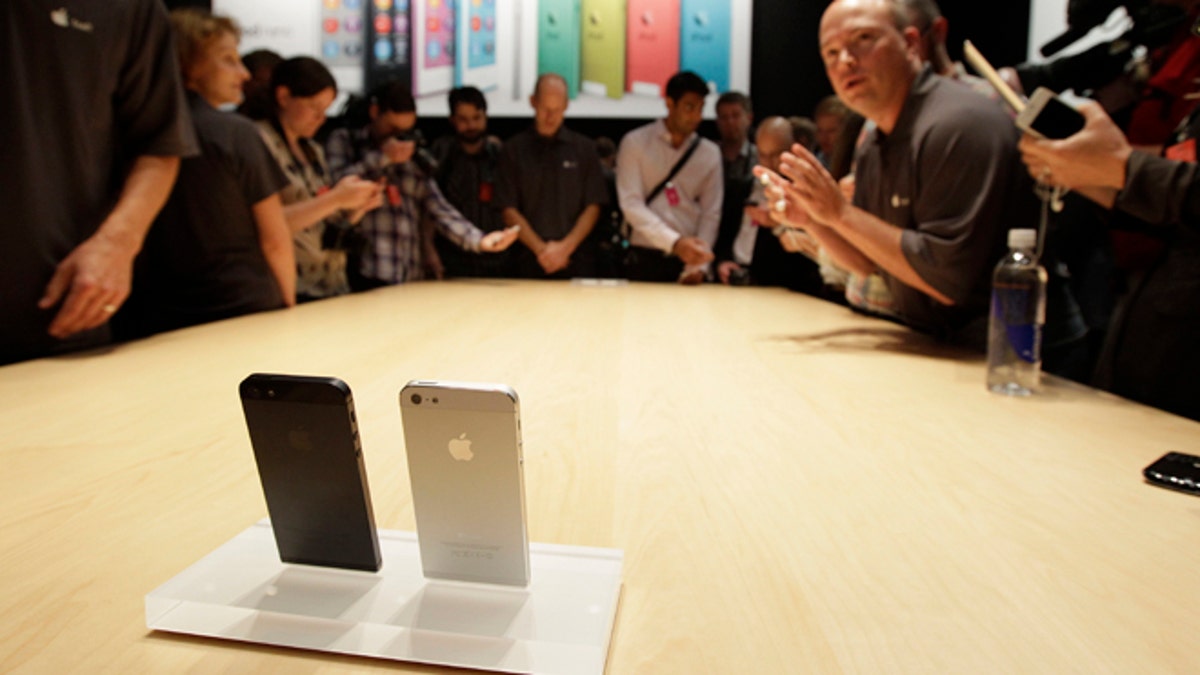
Apple's new iPhone 5 is getting dragged into the patent wars. (AP)
Samsung Electronics said Thursday it anticipates accusing Apple of patent infringement over the iPhone 5, in a U.S. court case separate from the one that grabbed worldwide attention last month.
With that second case not due for trial until 2014, however, Samsung's plan is unlikely to affect the availability of Apple's new smartphone. The iPhone 5 was set to go on sale Friday in Australia, Canada, France, Germany, Hong Kong, Japan, Singapore, the United Kingdom and the U.S. and next week in 22 more countries.
Once Samsung adds the iPhone 5 to the U.S. case, and perhaps to other cases elsewhere, it can begin seeking sales bans on the phone. But neither Samsung nor Apple has succeeded in getting a meaningful ban on the other since their global patent battle began in April last year. The two have filed about 50 lawsuits in nine countries accusing each other of patent infringements on smartphones and tablet computers.
In the highest-profile ruling yet, a jury in U.S. Federal Court in San Jose, Calif., last month found that Samsung infringed on six Apple patents and Apple infringed on none of Samsung's. It ordered Samsung to pay $1 billion in damages, but the judge hasn't set the final damage amount. Samsung said it would appeal the verdict.
The case set for trial in 2014 was filed in the same court by the two companies in February, with a new roster of patent claims—eight each by Samsung and Apple. Earlier this month, Apple amended its complaint to add four Samsung products that had gone on sale in the U.S. since February. They include the current flagship smartphone, the Galaxy S III.
- Richard Branson wants to ‘populate’ Mars
- Archaeologists find lost tombs, village on Philippine mountain
- Space shuttle Endeavour to fly over Tucson in honor of Gabby Giffords
- Big cameras, Beats audio, bright color: new Windows 8 phones from HTC
- 10 ways Android still beats the new iPhone 5
- The 11 best accessories for your iPad
Samsung's statement about the iPhone 5 indicates it will follow suit.
"Based on information currently available, Samsung expects the iPhone 5 will infringe the asserted Samsung patents-in-suit in the same way as the other accused iPhone models," the company's attorneys told the court in filing. They added that Samsung would decide whether to amend "as soon as it has had a reasonable opportunity to analyze the device."








































